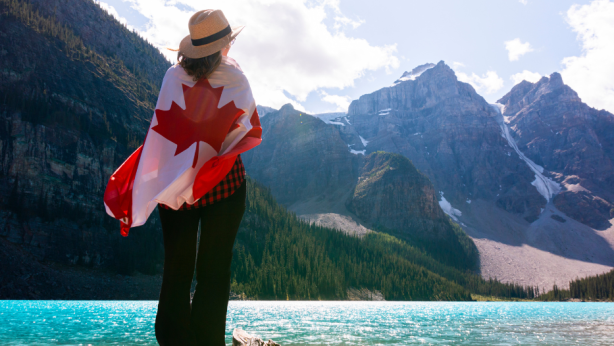How to Celebrate Canadian Holidays and Festivals (step-by-step guide)

**Please review the disclaimer at the end of this document before reading or using this guide.
Canada is a diverse and multicultural country with a rich tapestry of holidays and festivals that reflect its history, culture, and values. As a new immigrant, celebrating Canadian holidays and participating in festivals is a great way to connect with your community, learn about Canadian traditions, and share your own cultural heritage. This guide provides information on how new immigrants can celebrate Canadian holidays and festivals.
Step 1: Understand Major Canadian Holidays
- New Year’s Day (January 1):
- Canadians celebrate the New Year with family gatherings, fireworks, and social events. Many people make resolutions and spend the day with loved ones.
- Family Day (February):
- Celebrated on the third Monday of February in several provinces, Family Day is a time to spend with family, enjoy outdoor activities, and participate in community events.
- Good Friday and Easter Monday (March/April):
- These Christian holidays commemorate the crucifixion and resurrection of Jesus Christ. Many Canadians attend church services, and children enjoy Easter egg hunts.
- Victoria Day (May):
- Celebrated on the last Monday before May 25, Victoria Day marks the unofficial start of summer in Canada. It honors Queen Victoria’s birthday and is celebrated with fireworks and outdoor activities.
- Canada Day (July 1):
- Canada Day is a national holiday that marks the anniversary of Confederation in 1867. Canadians celebrate with parades, fireworks, concerts, and community events. It’s a time to show national pride and enjoy summer festivities.
- Labour Day (First Monday in September):
- Labour Day is a public holiday that celebrates the contributions of workers. It marks the end of summer and is often celebrated with picnics, barbecues, and outdoor activities.
- Thanksgiving (Second Monday in October):
- Thanksgiving in Canada is a time to give thanks for the harvest and blessings of the past year. Families gather for a traditional meal that often includes turkey, stuffing, and pumpkin pie.
- Remembrance Day (November 11):
- Remembrance Day honors the sacrifices of Canadian soldiers in wars and conflicts. Canadians observe a moment of silence at 11:00 AM, and many wear poppies as a symbol of remembrance.
- Christmas (December 25):
- Christmas is widely celebrated in Canada, with festive decorations, gift-giving, and family gatherings. Many Canadians also attend church services on Christmas Eve or Christmas Day.
- Boxing Day (December 26):
- Boxing Day is a public holiday known for its shopping sales and post-Christmas discounts. Many people spend the day shopping or relaxing with family.
Step 2: Participate in Multicultural Festivals
- Eid al-Fitr and Eid al-Adha:
- These Islamic holidays and festivals are celebrated by Muslim communities in Canada with special prayers, feasts, and giving to charity. Community gatherings and events are often held in mosques and community centers.
- Chinese New Year:
- Chinese New Year is celebrated with parades, dragon and lion dances, family gatherings, and traditional foods. Many cities in Canada, such as Vancouver and Toronto, host public celebrations.
- Diwali:
- Known as the Festival of Lights, Diwali is celebrated by many South Asian communities in Canada. It typically involves lighting lamps, sharing sweets, and attending cultural performances.
- Hanukkah:
- The Jewish Festival of Lights, Hanukkah, is celebrated with the lighting of the menorah, eating traditional foods like latkes, and playing games like dreidel.
- Kwanzaa:
- Kwanzaa is a week-long celebration of African heritage, culture, and values. It includes the lighting of the kinara, feasts, and discussions about African culture and history.
- Canada’s National Indigenous Peoples Day (June 21):
- This day celebrates the culture, heritage, and contributions of First Nations, Inuit, and Métis peoples in Canada. Events include traditional ceremonies, performances, and educational activities.
- Caribana (Toronto Caribbean Carnival):
- Caribana is one of the largest Caribbean festivals in North America, featuring a colorful parade, music, dancing, and Caribbean cuisine. It’s held in Toronto during the summer.
- Pride Festivals:
- Pride festivals celebrate LGBTQ+ communities with parades, parties, and cultural events. Major cities like Toronto, Vancouver, and Montreal host some of the largest Pride festivals in the country.
Step 3: Engage with Community Events
- Local Festivals and Fairs:
- Many Canadian cities and towns host local festivals and fairs that showcase regional culture, food, music, and crafts. These events are great opportunities to meet people and learn about local traditions.
- Cultural Heritage Days:
- Participate in events like Heritage Day or Multiculturalism Day, which celebrate the diverse cultural backgrounds of Canadians. These events often feature cultural performances, food tastings, and educational activities.
- Farmers’ Markets and Harvest Festivals:
- Visit farmers’ markets and harvest festivals, especially during the fall, to experience local produce, crafts, and community spirit.
- Winter Festivals:
- Embrace winter by attending festivals like Winterlude in Ottawa or Carnaval de Québec in Quebec City. These festivals celebrate winter with ice sculptures, outdoor activities, and cultural events.
Step 4: Embrace Canadian Traditions
- Host a Canadian-Themed Gathering:
- Host a gathering for holidays like Canada Day or Thanksgiving, where you can prepare traditional Canadian dishes like poutine, butter tarts, and Nanaimo bars.
- Learn Canadian Sports:
- Join in Canada’s love for sports by attending or participating in hockey games, curling, or ice skating. Watching the Stanley Cup playoffs is a popular Canadian pastime.
- Volunteer:
- Many Canadians volunteer during holidays, such as serving meals at shelters on Thanksgiving or Christmas. Volunteering is a great way to give back to the community and connect with others.
- Decorate for the Seasons:
- Decorate your home according to the season or holiday. For example, put up lights and a tree during Christmas, or carve pumpkins for Halloween.
Step 5: Share Your Cultural Traditions
- Introduce Your Holidays:
- Share your own cultural holidays and traditions with your Canadian friends and neighbors. This could include hosting a meal, giving a presentation, or organizing a cultural event.
- Attend Multicultural Events:
- Many Canadian communities host multicultural events where you can showcase your cultural heritage through food, music, dance, and crafts.
- Join Cultural Associations:
- Connect with cultural associations or community groups that celebrate your heritage. These organizations often host events, festivals, and social gatherings.
Additional Tips for New Immigrants
- Stay Informed:
- Follow local news, community boards, and social media to stay updated on upcoming holidays and festivals in your area.
- Get Involved:
- Participate in planning committees or volunteer at festivals to get more involved in your community.
- Respect Cultural Differences:
- Canada is a multicultural society, so be open to learning about and respecting different cultural practices and holidays.
- Celebrate Safely:
- Follow local guidelines and safety protocols, especially during large public events or holidays like New Year’s Eve.
Celebrating Canadian holidays and participating in festivals is a wonderful way for new immigrants to immerse themselves in Canadian culture, meet new people, and create lasting memories. By understanding the major holidays, engaging in multicultural festivals, embracing local traditions, and sharing your own cultural heritage, you can enrich your experience in Canada and feel more connected to your new home. Welcome to Canada, and enjoy the vibrant celebrations that this diverse country has to offer!
**DISCLAIMER: This document was prepared based on information gathered from various online sources. While our aim is to provide accurate and helpful information to newcomers in Canada, Active Action cannot be held responsible for any actions, outcomes, or situations that may arise from the use of this document. We strongly recommend that you verify any details with official sources or relevant authorities if you have any doubts or uncertainties about any information provided in this document. If you have any specific questions about the information in this document, or if you notice any inaccuracies or missing information, please inform us immediately through the contact form. We will respond to you as soon as possible and/or update the information as necessary.


